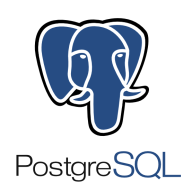

PostgreSQL and SQLite are database solutions that cater to different needs. PostgreSQL is often favored due to its advanced capabilities in handling complex queries and data management, while SQLite leads in scenarios requiring lightweight setup and ease of use.
Features: PostgreSQL is renowned for its advanced concurrency support, complex query handling, and full ACID compliance, making it a strong choice for large enterprise applications. It also offers excellent performance and reliability, supporting features like SQL windowing functions and JSONB storage for complex data types. On the other hand, SQLite excels with its simplicity and embedded architecture, requiring zero configuration, making it ideal for small applications, mobile devices, and IoT projects. Its single-file database structure allows easy transport and deployment across various platforms.
Room for Improvement: PostgreSQL can benefit from simplified configuration processes, which can be daunting in initial setups. Enhancing its onboarding resources could reduce the steep learning curve for new users. Additionally, improved integration with cloud services could further expand its utility in modern deployments. SQLite might focus on extending its feature set to handle more complex database operations without compromising performance. Enhancing its concurrency support and providing more advanced data management tools could boost its appeal in larger scale projects. Furthermore, improved security features would make SQLite more appealing for sensitive application use cases.
Ease of Deployment and Customer Service: PostgreSQL requires a more detailed setup and configuration, which, while offering extensive customizability, can be an obstacle to quick deployment. Its strong community support provides substantial resources for users to navigate this complexity. SQLite, in contrast, is known for its straightforward deployment, offering a hassle-free setup with no need for a separate service. This makes it highly convenient for developers prioritizing rapid integration and application development.
Pricing and ROI: PostgreSQL may involve higher initial costs due to the need for dedicated infrastructure and potential database administration. Nevertheless, it delivers a better return on investment in environments demanding robust performance and reliability. SQLite, being free and open-source, minimizes setup costs, thus providing excellent ROI for projects requiring minimal resource allocation without compromising efficiency.
| Product | Market Share (%) |
|---|---|
| PostgreSQL | 16.6% |
| SQLite | 5.4% |
| Other | 78.0% |


| Company Size | Count |
|---|---|
| Small Business | 58 |
| Midsize Enterprise | 26 |
| Large Enterprise | 45 |
| Company Size | Count |
|---|---|
| Small Business | 5 |
| Midsize Enterprise | 1 |
| Large Enterprise | 3 |
PostgreSQL is a versatile and reliable database management system commonly used for web development, data analysis, and building scalable databases.
It offers advanced features like indexing, replication, and transaction management. Users appreciate its flexibility, performance, and ability to handle large amounts of data efficiently. Its robustness, scalability, and support for complex queries make it highly valuable.
Additionally, PostgreSQL's extensibility, flexibility, community support, and frequent updates contribute to its ongoing improvement and stability.
SQLite is an open-source, serverless, reliable, and flexible, SQL database engine. It is particularly favored in the realm of embedded database solutions and small to medium-sized projects. Unlike traditional database systems that operate on a client-server model, SQLite is a serverless database engine, meaning it runs directly within the application it powers. This unique architecture makes SQLite an ideal choice for applications where simplicity, efficiency, and minimal configuration are paramount.
SQLite is an embedded database engine, which means it operates directly within the application that uses it, without requiring a separate server process. It is designed to be cross-platform, supporting multiple operating systems, and is is compatible with a wide range of programming languages, such as C, C++, Python, Java, and more. This makes it highly portable and suitable for a wide range of applications, from mobile devices to desktop software and web applications.
The key advantages of SQLite is its reliability, the lightweight nature and efficient performance. It has a small footprint, typically requiring only a few megabytes of disk space, and can operate entirely in memory if needed. It is designed to be reliable and robust, with built-in features such as atomic commit and rollback, which ensure data integrity even in the event of system crashes or power failures. Finally, the SQLite solution requires no configuration or setup, making it easy to use and deploy. It can be embedded directly into applications without the need for complex installation or configuration procedures.
SQLite Functionality
SQLite is an open-source project distributed under a public domain license, which means it can be used, modified, and distributed freely, without any licensing costs or restrictions.
To summarize, SQLite is widely used in various applications, including web browsers (e.g., Mozilla Firefox, Google Chrome), mobile applications (e.g., Android, iOS), embedded systems, and desktop software. Its simplicity, portability, and efficiency make it a popular choice for developers who require a lightweight and reliable database solution, especially in resource-constrained environments or applications with modest data storage needs.
We monitor all Open Source Databases reviews to prevent fraudulent reviews and keep review quality high. We do not post reviews by company employees or direct competitors. We validate each review for authenticity via cross-reference with LinkedIn, and personal follow-up with the reviewer when necessary.